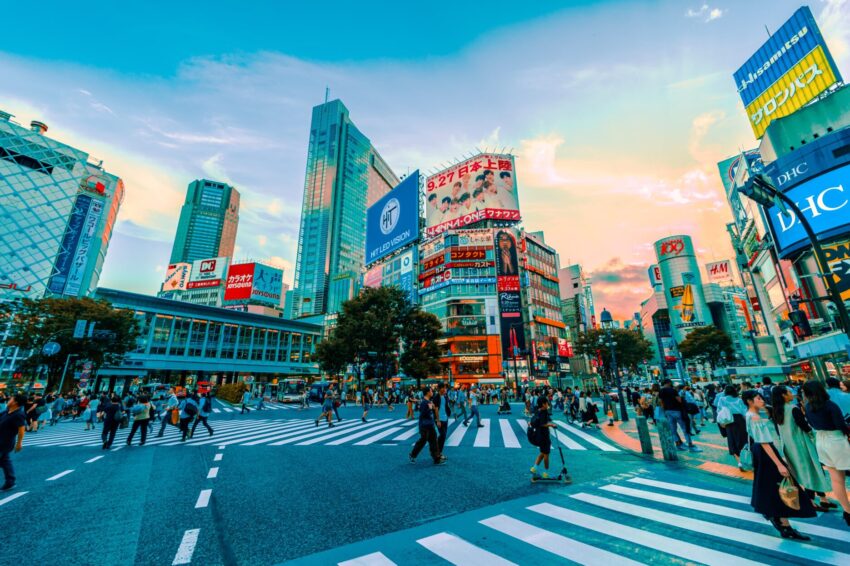My Life in Japan

Top photo: Jezael Melgoza on Unsplash
Living in Japan can be difficult, but also quite enjoyable, for a non-Japanese individual. Beyond just the language barrier, there are many cultural differences that can sometimes make it difficult for Japanese people and those from Western societies to relate to each other. But then, the same could be said of other countries, and even those of two different Western societies themselves in some cases.
However, it is my belief that if one is able to overcome those barriers, they will come out the other side a completely changed person capable of handling anything that life throws at them. There are also several experiences unique to Japan that make life here congenial. It is my hope to offer some insight into what life is like living in Japan as a Western individual, so that you may decide for yourself if it is right for you.
Day-to-day life in Japan can be summarized in one word: peaceful. Crime (especially violent crime) is low. Natural disasters are few and far between. Civil unrest is virtually non-existent. Each day is very much like the one before. This kind of social atmosphere provides a sense of security and normalcy that allows for one to indulge themselves in whichever kinds of personal pursuits they wish. Within reason, of course. There are certain cultural faux pas that a person should educate themselves on depending upon their individual needs, but for the most part, the Japanese are content to live and let live. A sense of tolerance and passiveness abounds here.
Japan is a land of hobbies. You may have already heard about the busy lifestyle of the typical Japanese person. Everyone, from kindergarteners to office workers, has a packed day from morning to evening. Classes, meetings, chores, events, private lessons, after-school clubs, etc.
It is my personal belief that because of this, Japanese people become very passionate about, and pour themselves into, whichever hobby they choose. A hopeful schoolgirl researches on the internet for hours on end to find the best guitar equipment for beginners and signs up for private lessons near her home. A housewife seeks several recommendations for an English language service so that she can further enjoy trips abroad that she loves to take. And of course, that which is known world over, the famous (or infamous) otaku dives head-first into indulgence in their favorite anime and manga. The point here is, if you have an interest, you can indulge it and most likely find others as passionate as you here in Japan.
Food. Ah, the food. I think it hardly needs addressing due to this age of social media that we live in, but I’d feel like I’m disrespecting it if I don’t talk about it. There’s a reason why cuisines such as sushi, Japanese-style ramen, yakiniku (literally “grilled meat”), and yakitori (literally “grilled chicken”) have become popular around the world. They are more than just a meal; they are an experience.
A friend of mine and myself had a near-spiritual experience eating bowls of ramen that took fifteen minutes to prepare in the famous Ramen Alley in Sapporo. The little mom-and-pop sushi restaurant in the tiny fishing village of Kamoenai that I used to live in has completely ruined me, as I can’t stop comparing every sushi place that I eat at to it, and they never measure up to me. The husband and wife that run the yakitori restaurant next to my home station use only fresh ingredients and are on a first-name basis with my girlfriend and I. Both the food and the conversation are tantalizing.
This small island country boasts a rich and ancient history and culture. A total of 23 UNESCO World Heritage sites can be found here. Japan attracted 31.9 million tourists in 2018, and the 2017 Travel and Tourism Competitiveness Report ranked Japan fourth out of 141 countries, the highest score in Asia.
Let me tell you, the high scores aren’t just hype. The temples and shrines are majestic. The kimono and hakama are elegant. The festivals are electric. The art and theater are resplendent. Even though I have been living here for several years now, I still have not been able to go to all the places I wish to, and greatly look forward to doing so. Speaking of traveling, it’s extremely easy to do in this country, and can be inexpensive if you do your research.
Life here isn’t all fun and games, however. Much has been made of the difficulties one can feel as an ‘outsider’ in Japan. You’re always reminded that you are different, even after years and years of assimilation. At best it just makes you feel like a low-level celebrity as others react to you with curiosity or polite nervousness; at worst it can feel isolating and almost bigoted. Yes, I know how to use chopsticks, I can read the Japanese menu, and no, we don’t all own guns in America or play soccer in Brazil or own pet koalas in Australia.
Fortunately, this attitude is usually not malicious in nature and often simply based in ignorance. Japan’s population is 98.1% ethnically Japanese, so the average Japanese individual does not come into contact with non-Japanese individuals often, sometimes at all. Because of this, the majority of a Japanese person’s experience of non-Japanese individuals comes from the media. Thankfully, this trend is beginning to change as Japan becomes more cosmopolitan, even if the reason for that (an aging population and declining birthrate necessitating more foreign workers) isn’t so glamorous.
I find you approach any situations that may arise with an open heart and a cool head, you should come out of it just fine. And it must be said; we all know that person back home whose image of Japan is that it’s an impenetrable wonderland full of crazy, depraved pop culture where “everyone” is xenophobic- a far more backwards view than anything I’ve encountered here. Japan, like anywhere else, is a real country with real people, and should be granted the same basic respect when one finds themselves here.
Since I have now gone on at length about my experience in Japan, this is the point where I say, “Everyone’s experience is different.” Which is true. When you talk with other non-Japanese people who live here, you will most definitely find a few things that are shared by everyone, no matter where they are from, but you will also come to understand that everyone has certain things about this country that stand out to them. At the end of the day, no matter how much I gush about Japan and my experience here, the only way to truly understand is to come and experience it for yourself.
Ready to experience it for yourself? If you’re already in Japan and living in the Osaka area, Borderlink is looking for you! Even if you’re overseas, hiring for Spring 2022 is starting! For more information, read all about the job of an ALT!
Photo Credits:
Top photo: Jezael Melgoza on Unsplash
All other content (text) created by the original author and © 2021 MUSUBI by Borderlink
RELATED
-

A Beginner’s Guide to Apartments in Japan
Top photo: Joseph Albanese on Unsplash Searching for a place to live is a daunting task, even in the familiar… -

Bucket List Must-Haves: Tokyo’s Ghibli-Inspired Cat Village
Top photo: Zygel Doll Jamelano, used with permission “It is probably one of the most underrated places you can… -

Quick Tips: Moving In Japan
Top Image: Irasutoya Quick Tips are fast advice for busy people- the perfect thing to read on that morning co…
PEOPLE

Connor Steck
From the US
Started his new life in Japan with a year in Hokkaido!


